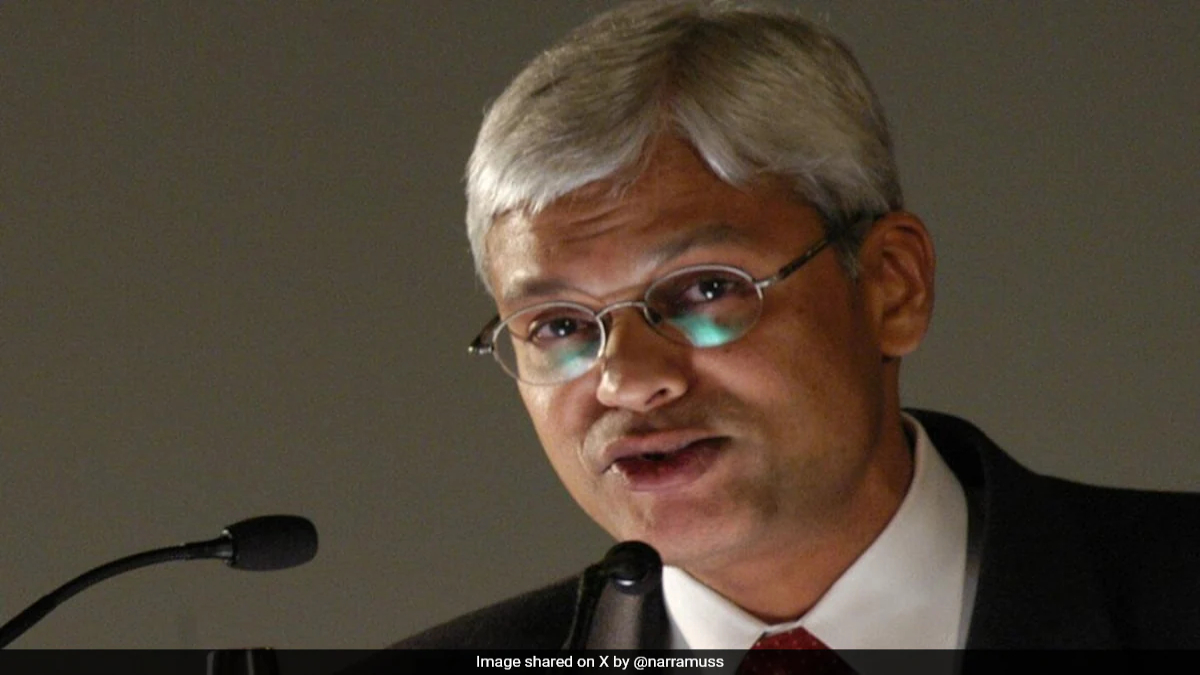Now Reading: Ashley J. Tellis: A Noted US-India Strategist Under Scrutiny
-
01
Ashley J. Tellis: A Noted US-India Strategist Under Scrutiny
Ashley J. Tellis: A Noted US-India Strategist Under Scrutiny

Ashley J. Tellis, an Indian-born American foreign-policy scholar and a prominent voice on US-India relations, has recently come under intense public and legal scrutiny in the United States. Tellis, who holds the prestigious Tata Chair for Strategic Affairs at the Carnegie Endowment for International Peace and has advised multiple US administrations, was arrested and charged with the unlawful retention of national defense information.
The charges filed in a Virginia federal court allege that Tellis removed highly sensitive, classified materials from secure government facilities and stored them at his private residence. An FBI affidavit accompanying the charge documents states that a search of his home uncovered over a thousand pages of documents marked “Top Secret” and “Secret.” Further fueling the controversy are allegations that Tellis held undisclosed meetings with officials associated with the Chinese government in recent years, with court filings citing instances where he allegedly arrived at dinners with a manila envelope and left without it, or was observed receiving a gift bag. While the affidavit does not directly accuse him of sharing classified information during these meetings, the circumstances have drawn considerable attention due to his access to critical strategic policy data.
A Career Defined by Strategic Depth
Born in Mumbai in 1961, Tellis’s career trajectory is one of exceptional academic and professional achievement. After completing his undergraduate and master’s degrees in Economics from St. Xavier’s College in Mumbai, he earned an MA and a Ph.D. in political science from the University of Chicago. He later moved into policy analysis, serving as a senior policy analyst at the RAND Corporation.
His time in public service solidified his reputation as a key figure in US foreign policy circles, particularly concerning South Asia. He was commissioned into the U.S. Foreign Service and served as Senior Adviser to the Ambassador at the U.S. Embassy in New Delhi. During the George W. Bush administration, he held influential posts on the National Security Council staff, where he was intimately involved in shaping US policy toward India and played a key, behind-the-scenes role in negotiating the landmark US-India Civil Nuclear Agreement. This deal was widely considered a turning point, resetting bilateral ties and ending decades of nuclear isolation for India.
Views on the US-India Relationship
Even after his government service, Tellis remained a leading commentator, known for his incisive, often contrarian, analysis. His work at the Carnegie Endowment, where he specializes in international security and US foreign and defense policy with a focus on Asia, has continued to influence strategic dialogue in both Washington and New Delhi.
Notably, his recent writings, such as the essay “India’s Great-Power Delusions,” offered a more skeptical view of the US-India partnership’s potential. He argued that India’s desire for strategic autonomy, its growing illiberal tendencies, and its preference for a multipolar global order place inherent limitations on the depth of its strategic alignment with the United States. Such analyses, while challenging the prevailing optimism about the partnership, have cemented his reputation as an intellectually rigorous and unflinchingly blunt strategist.
The ongoing legal proceedings have sent shockwaves through the tightly knit Washington and New Delhi policy communities, casting a significant shadow over the career of a strategist who spent decades working at the intersection of US, Indian, and Chinese security interests. If convicted of the charges of unlawfully retaining national defense information, Tellis could face a maximum sentence of 10 years in prison.
The arrest of a figure so central to the policy establishment raises profound questions not only about the mishandling of classified material but also about the potential vulnerability of the “revolving door” between government service and influential Washington think tanks.







